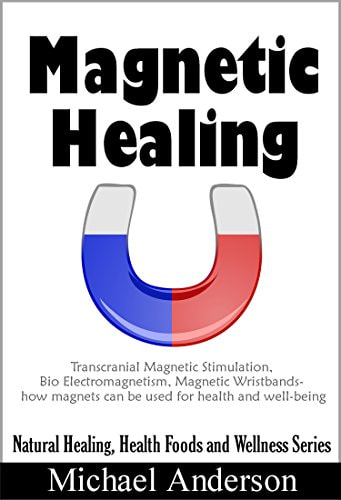| | Adding bananas to your diet can benefit you in a number of ways. Bananas are a very rich source of dietary fibre and potassium, and the fruit can also help you lose weight. Bananas are high in Potassium Besides the good taste, bananas are a good source of potassium and other nutrients. They are a great midday snack and can be used to make homemade treats. They also provide carbohydrates for exercise endurance. They can be eaten raw or added to a smoothie. |
Bananas are also a good source of fiber. These fibers are beneficial because they slow digestion and help keep blood sugar levels in check. They can also reduce the risk of colorectal cancer.
Bananas are also good for your heart. Studies have shown that potassium may help prevent heart attacks and strokes. Bananas are also rich in antioxidants and vitamin C. This vitamin helps to fight free radicals that cause cell damage.
Bananas are also a good source of manganese. This mineral plays a key role in bone development and metabolism. They are also rich in vitamin B6, which helps maintain a healthy nervous system.
Bananas also contain fructo-oligo-saccharides, which help the body absorb calcium. These compounds can also promote the growth of beneficial gut bacteria. They may also help reduce diarrhea.
Other good sources of potassium include tomatoes, white beans, beets, potatoes, watermelon, and spinach. However, potassium is a nutrient that should be monitored by your doctor. It is important to keep sodium and potassium levels in a balance to maintain healthy blood pressure.
Potassium is an important nutrient for the heart and muscles. Having enough potassium can reduce the risk of heart attacks and kidney stones.
Bananas are also good for your heart. Studies have shown that potassium may help prevent heart attacks and strokes. Bananas are also rich in antioxidants and vitamin C. This vitamin helps to fight free radicals that cause cell damage.
Bananas are also a good source of manganese. This mineral plays a key role in bone development and metabolism. They are also rich in vitamin B6, which helps maintain a healthy nervous system.
Bananas also contain fructo-oligo-saccharides, which help the body absorb calcium. These compounds can also promote the growth of beneficial gut bacteria. They may also help reduce diarrhea.
Other good sources of potassium include tomatoes, white beans, beets, potatoes, watermelon, and spinach. However, potassium is a nutrient that should be monitored by your doctor. It is important to keep sodium and potassium levels in a balance to maintain healthy blood pressure.
Potassium is an important nutrient for the heart and muscles. Having enough potassium can reduce the risk of heart attacks and kidney stones.
Bananas are high in Vitamin C
Besides being sweet, bananas are filled with nutrients, including potassium, calcium, magnesium, vitamins, and fiber. They're also low in fat, cholesterol, and sodium. Adding them to your diet is an easy way to boost your health.
Bananas are also a great source of antioxidants. Antioxidants are a type of vitamin that prevent free radicals from destroying healthy cells in the body. Bananas also contain an amino acid called tyrosine, which can aid the production of norepinephrine, a brain neurotransmitter that helps to regulate your moods and sleep cycle. In addition, bananas are high in fructo-oligo-saccharides, a non-digestible type of carbohydrates that promotes the growth of digestive-friendly probiotics.
Bananas are also rich in tryptophan, an amino acid that converts to serotonin, a neurotransmitter that helps regulate sleep. Bananas also contain fiber, a type of nutrient that can help regulate blood sugar levels. Bananas can also replace butter in baked goods.
Bananas are high in potassium, an electrolyte that keeps the heart beating properly. Potassium also maintains a balance of water within cells. Potassium can also help keep muscles contracting properly. It's also important for regulating blood pressure. Bananas are a good source of vitamin B6, which is a key part of protein metabolism.
Bananas also contain a form of fiber called pectin, which moderates the rise in blood sugar after a meal. A high-fiber diet has been shown to reduce the risk of heart disease and other types of cardiovascular disease. Bananas also contain fructo-oligo-saccharides, which are non-digestible carbohydrates that boost the body's ability to absorb calcium.
Bananas are high in Dietary Fibre
Including bananas in your diet can help promote digestive health. They are high in fibre and antioxidant vitamin C. They are also an excellent source of vitamin B6, which performs a number of important functions in the body. Bananas are also low in fat and cholesterol, making them a good choice for athletes and anyone who wants to maintain a healthy diet.
Bananas are also rich in potassium, which helps regulate blood pressure. They are also a good source of phosphorus and magnesium. These minerals help support muscle contraction during exercise. Potassium also helps maintain fluid levels in the body. If you suffer from kidney disease, you should be sure to limit your intake of potassium-rich foods.
Bananas are also a good source of pectin, a soluble fibre that helps normalize bowel function. Pectin also helps reduce cholesterol levels.
Bananas are also a good source of prebiotics. Prebiotics are non-digestible carbohydrates that feed healthy gut bacteria. Bananas contain a high amount of resistant starch, a form of dietary fibre.
Resistant starch works in the same way as soluble fibre. It has a prebiotic effect, reducing the amount of glucose that enters the blood. Resistant starch also helps you stay full for longer.
A high fiber diet can lower your risk of developing type 2 diabetes and cardiovascular disease. It can also help you control your blood sugar. A study found that people who ate a diet high in fiber had lower blood sugar levels.
Bananas are high in Manganese
Getting the right amount of manganese is important for your health. It is a trace mineral that plays a number of important roles in the body, from aiding the immune system to helping with a number of bodily functions. This nutrient also helps with heart health, and can even help with preventing epilepsy.
The manganese content in bananas has some serious health benefits. It helps the body make and use collagen, an important protein. This protein helps keep bones strong and flexible. Taking this mineral can also help prevent osteoporosis, which can result in bone loss.
In addition to the manganese, bananas contain a number of other nutrients, including vitamin C, copper and magnesium. Vitamin C helps with the body's immune system. The vitamin also helps speed up the repair of damaged soft tissue. In addition, potassium is a vital mineral that helps with the maintenance of healthy blood pressure, heart function, and normal body fluids.
Another major nutrient in bananas is vitamin B6. This vitamin helps the body maintain a healthy nervous system, and is especially useful for pregnant women. It also helps meet the development requirements of a growing baby.
It may also help with a variety of gastrointestinal issues, including constipation and diarrhea. Bananas are also a good source of soluble fibre. Insoluble fibre helps keep the gut healthy and safe from harmful bacteria. It also helps regulate bowel movement and adds weight to stools.
Bananas are high in Tryptophan
Adding bananas to your diet can help you improve your sleep. Tryptophan is an amino acid that works to convert to serotonin, a hormone that helps regulate sleep and mood. Tryptophan is also an essential nutrient that helps you feel energized.
Tryptophan has been shown to improve sleep quality, and can help you fall asleep quicker and stay asleep longer. It can also help improve mood and memory.
Tryptophan is found in many protein-rich foods. Tryptophan can also be taken as a supplement. Tryptophan supplements have been shown to improve sleep and memory.
Tryptophan helps you produce serotonin, a brain neurotransmitter that improves mood and relieves stress. The amino acid is also used to make 5-HTP, a compound that helps the body produce melatonin, a hormone that is important for relaxation and sleep. It is also used to treat insomnia and sleep apnea.
The benefits of tryptophan are most apparent in people with a history of mood disorders. Tryptophan may also help protect you from anxiety and depression.
The amino acid is also used to produce hemoglobin, a nutrient that is essential for producing red blood cells. It can also help prevent type II diabetes.
Bananas are rich in tryptophan, potassium, and magnesium. These minerals keep the body's muscles and heart functioning properly. They also keep blood glucose levels steady.
Bananas also contain fructo-oligo-saccharides, non-digestible carbohydrates that encourage digestive-friendly probiotics and enhance the body's ability to absorb calcium. They also have a low sodium content, which may help prevent high blood pressure.
Bananas are high in Weight Loss
Those who are trying to lose weight can benefit from the nutritional benefits of eating bananas. This fruit is rich in fiber, vitamins and antioxidants. It also has the ability to reduce the risk of various diseases.
Fiber is important to the body because it fills you up and helps you feel full for a longer period of time. It also stabilises your blood sugar. The amount of fibre you consume can help you reduce weight, and it can also help you reduce your cholesterol levels.
Bananas are also great sources of vitamins and minerals. They contain potassium, B vitamins, and antioxidants. These nutrients help you maintain healthy muscles and bones. Bananas can also help you improve your digestive health. This is important when you are trying to lose weight.
Bananas are also a good source of vitamin C. This vitamin helps the body produce collagen, which is important for skin health. It also protects skin cells from oxidative stress.
Bananas are good for people who have diabetes because they contain resistant starch. This starch is broken down by bacteria in the large intestine. It helps to improve your gut's microbiome and can also improve your insulin sensitivity.
Eating bananas is also a great way to boost your metabolism. The fibre in bananas helps to reduce your appetite. They also increase your levels of bloat-fighting bacteria in your stomach. This helps your body get rid of the extra water you are holding.
Besides being sweet, bananas are filled with nutrients, including potassium, calcium, magnesium, vitamins, and fiber. They're also low in fat, cholesterol, and sodium. Adding them to your diet is an easy way to boost your health.
Bananas are also a great source of antioxidants. Antioxidants are a type of vitamin that prevent free radicals from destroying healthy cells in the body. Bananas also contain an amino acid called tyrosine, which can aid the production of norepinephrine, a brain neurotransmitter that helps to regulate your moods and sleep cycle. In addition, bananas are high in fructo-oligo-saccharides, a non-digestible type of carbohydrates that promotes the growth of digestive-friendly probiotics.
Bananas are also rich in tryptophan, an amino acid that converts to serotonin, a neurotransmitter that helps regulate sleep. Bananas also contain fiber, a type of nutrient that can help regulate blood sugar levels. Bananas can also replace butter in baked goods.
Bananas are high in potassium, an electrolyte that keeps the heart beating properly. Potassium also maintains a balance of water within cells. Potassium can also help keep muscles contracting properly. It's also important for regulating blood pressure. Bananas are a good source of vitamin B6, which is a key part of protein metabolism.
Bananas also contain a form of fiber called pectin, which moderates the rise in blood sugar after a meal. A high-fiber diet has been shown to reduce the risk of heart disease and other types of cardiovascular disease. Bananas also contain fructo-oligo-saccharides, which are non-digestible carbohydrates that boost the body's ability to absorb calcium.
Bananas are high in Dietary Fibre
Including bananas in your diet can help promote digestive health. They are high in fibre and antioxidant vitamin C. They are also an excellent source of vitamin B6, which performs a number of important functions in the body. Bananas are also low in fat and cholesterol, making them a good choice for athletes and anyone who wants to maintain a healthy diet.
Bananas are also rich in potassium, which helps regulate blood pressure. They are also a good source of phosphorus and magnesium. These minerals help support muscle contraction during exercise. Potassium also helps maintain fluid levels in the body. If you suffer from kidney disease, you should be sure to limit your intake of potassium-rich foods.
Bananas are also a good source of pectin, a soluble fibre that helps normalize bowel function. Pectin also helps reduce cholesterol levels.
Bananas are also a good source of prebiotics. Prebiotics are non-digestible carbohydrates that feed healthy gut bacteria. Bananas contain a high amount of resistant starch, a form of dietary fibre.
Resistant starch works in the same way as soluble fibre. It has a prebiotic effect, reducing the amount of glucose that enters the blood. Resistant starch also helps you stay full for longer.
A high fiber diet can lower your risk of developing type 2 diabetes and cardiovascular disease. It can also help you control your blood sugar. A study found that people who ate a diet high in fiber had lower blood sugar levels.
Bananas are high in Manganese
Getting the right amount of manganese is important for your health. It is a trace mineral that plays a number of important roles in the body, from aiding the immune system to helping with a number of bodily functions. This nutrient also helps with heart health, and can even help with preventing epilepsy.
The manganese content in bananas has some serious health benefits. It helps the body make and use collagen, an important protein. This protein helps keep bones strong and flexible. Taking this mineral can also help prevent osteoporosis, which can result in bone loss.
In addition to the manganese, bananas contain a number of other nutrients, including vitamin C, copper and magnesium. Vitamin C helps with the body's immune system. The vitamin also helps speed up the repair of damaged soft tissue. In addition, potassium is a vital mineral that helps with the maintenance of healthy blood pressure, heart function, and normal body fluids.
Another major nutrient in bananas is vitamin B6. This vitamin helps the body maintain a healthy nervous system, and is especially useful for pregnant women. It also helps meet the development requirements of a growing baby.
It may also help with a variety of gastrointestinal issues, including constipation and diarrhea. Bananas are also a good source of soluble fibre. Insoluble fibre helps keep the gut healthy and safe from harmful bacteria. It also helps regulate bowel movement and adds weight to stools.
Bananas are high in Tryptophan
Adding bananas to your diet can help you improve your sleep. Tryptophan is an amino acid that works to convert to serotonin, a hormone that helps regulate sleep and mood. Tryptophan is also an essential nutrient that helps you feel energized.
Tryptophan has been shown to improve sleep quality, and can help you fall asleep quicker and stay asleep longer. It can also help improve mood and memory.
Tryptophan is found in many protein-rich foods. Tryptophan can also be taken as a supplement. Tryptophan supplements have been shown to improve sleep and memory.
Tryptophan helps you produce serotonin, a brain neurotransmitter that improves mood and relieves stress. The amino acid is also used to make 5-HTP, a compound that helps the body produce melatonin, a hormone that is important for relaxation and sleep. It is also used to treat insomnia and sleep apnea.
The benefits of tryptophan are most apparent in people with a history of mood disorders. Tryptophan may also help protect you from anxiety and depression.
The amino acid is also used to produce hemoglobin, a nutrient that is essential for producing red blood cells. It can also help prevent type II diabetes.
Bananas are rich in tryptophan, potassium, and magnesium. These minerals keep the body's muscles and heart functioning properly. They also keep blood glucose levels steady.
Bananas also contain fructo-oligo-saccharides, non-digestible carbohydrates that encourage digestive-friendly probiotics and enhance the body's ability to absorb calcium. They also have a low sodium content, which may help prevent high blood pressure.
Bananas are high in Weight Loss
Those who are trying to lose weight can benefit from the nutritional benefits of eating bananas. This fruit is rich in fiber, vitamins and antioxidants. It also has the ability to reduce the risk of various diseases.
Fiber is important to the body because it fills you up and helps you feel full for a longer period of time. It also stabilises your blood sugar. The amount of fibre you consume can help you reduce weight, and it can also help you reduce your cholesterol levels.
Bananas are also great sources of vitamins and minerals. They contain potassium, B vitamins, and antioxidants. These nutrients help you maintain healthy muscles and bones. Bananas can also help you improve your digestive health. This is important when you are trying to lose weight.
Bananas are also a good source of vitamin C. This vitamin helps the body produce collagen, which is important for skin health. It also protects skin cells from oxidative stress.
Bananas are good for people who have diabetes because they contain resistant starch. This starch is broken down by bacteria in the large intestine. It helps to improve your gut's microbiome and can also improve your insulin sensitivity.
Eating bananas is also a great way to boost your metabolism. The fibre in bananas helps to reduce your appetite. They also increase your levels of bloat-fighting bacteria in your stomach. This helps your body get rid of the extra water you are holding.















